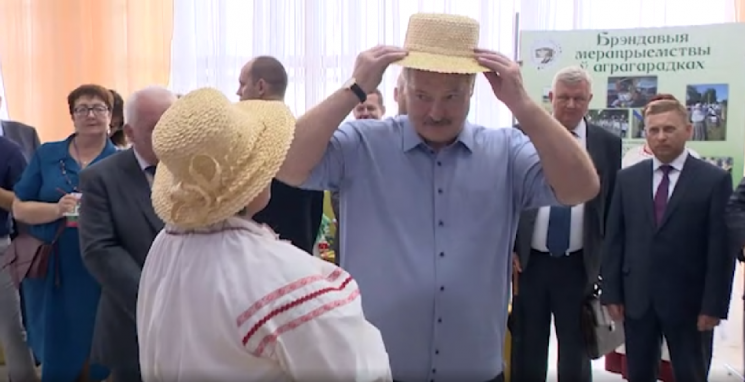Ideology departments undergo a modernization of operations; the president avoids speaking about reforms
 The situation has gotten better
The situation has gotten better

State ideology departments are undergoing a modernization of operations to alter information policy approaches in traditional state media, strengthen state’s positions on the Internet and ensure feedback from the population. To boost his popular support, the president is focusing on current issues and avoids raising the issue of economic reforms.
The Belarusian leadership regularly reshuffles ideology and information workers and pursues a consistent rejuvenation policy in ideological departments. The authorities aim to strengthen their positions on the Internet, where the state-owned media lose the battle for readers to Russian and non-state Belarusian media. Simultaneously, the president provides social elevators to regional officials, counting on their loyalty, and assuming they have better feedback from the population. Some high-ranking officials have climbed to the top by making all career ladder steps, starting at the bottom. For instance, Lukashenka has appointed former deputy chairman of the Mogilev oblast executive committee Kuntsevich as Presidential Administration Deputy Head overseeing media and ideology; the Presidential Administration Head, Kachanava, started her career in the native Vitsebsk region.
President Lukashenka continued to travel to remote agricultural regions. As the harvesting campaign is unravelling, the president is likely to increase the frequency of such visits to reinforce his image of a business executive for his usual voters in rural areas and small towns. That said, the president avoids addressing strategic issues, such as economic reforms advocated for by Rumas-led government.
The Belarusian authorities have resumed the election populism about pay rises, however they primarily focus on a fair distribution of income by promising higher wages to the low-paid population. The authorities aim to boost popular support for public institutions among these groups. That said, some unpopular measures, such as the “decree on social dependents”, prompted public protests in those groups which had previously consistently supported the incumbent president and his policies.
The Belarusian leadership is likely to further experiment with the information policy, enhancing the openness of ideologists to the feedback from the population and promoting the state policy on the Internet through online communication channels.
Subscribe to our newsletter




Situation in Belarus
Constitutional referendum: main consequences


 Video
Video
How to count the political prisoners: are the new criteria needed?


 Video
Video
Paternalism In Decline, Belarusian Euroscepticism, And The Influence Of Russia


 Video
Video











